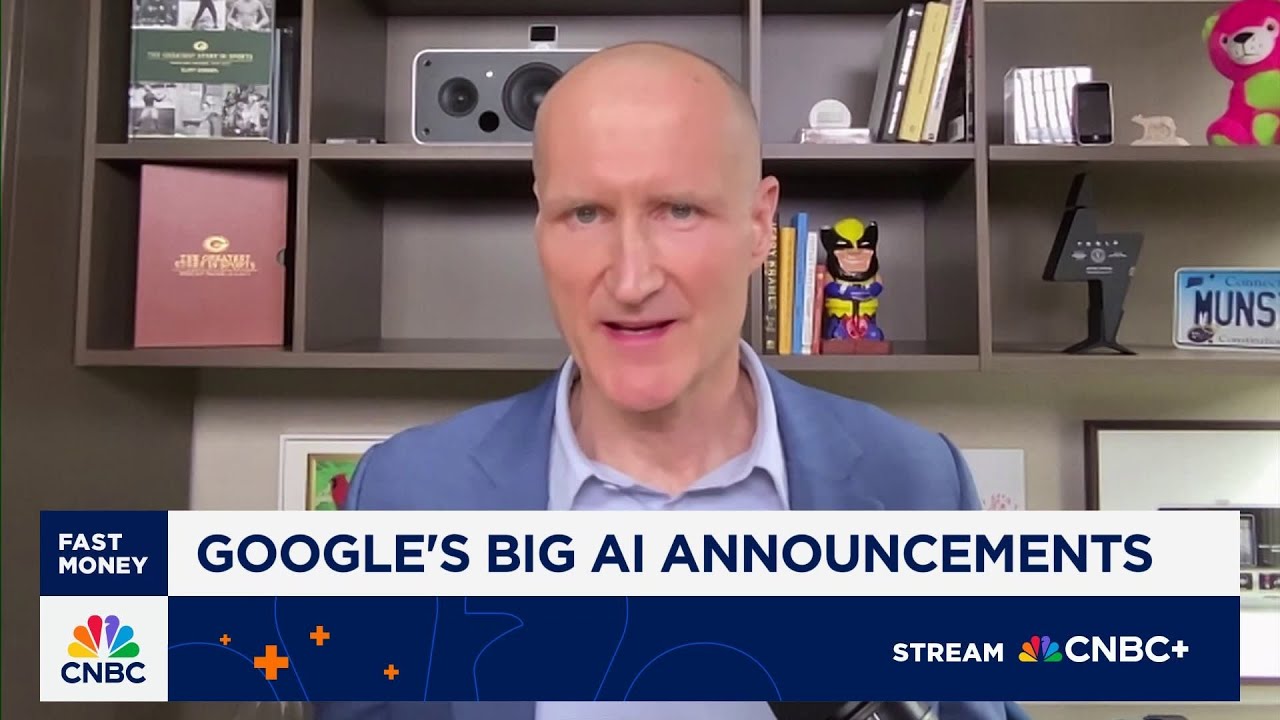Gene Munster from Deep Water Asset Management discusses Google’s cautious, incremental approach to integrating AI into search with its “AI mode,” aiming to balance innovation with user trust and familiarity. He emphasizes that while Google has a strong user base and brand advantage, it needs to accelerate AI development to stay competitive and avoid long-term decline like other tech giants.
In the discussion, Gene Munster from Deep Water Asset Management analyzes Google’s recent AI announcements, noting that the landscape of search is evolving faster than expected. Google has acknowledged significant changes over the past year, particularly in how AI is impacting search. Their solution, called “AI mode,” offers generative search results with ads integrated around them, providing a hybrid approach that differs from pure generative AI like GPT. Google is cautious about making drastic changes, choosing not to fully overhaul search but instead introduce incremental AI features to maintain user familiarity and trust.
Munster points out that Google’s strategy reflects an understanding of the enormous user base—over 2.2 billion people who search multiple times daily—and their reluctance to disrupt this muscle memory. Instead of rushing into a complete transformation, Google is opting for a gradual integration of AI, aiming to reassure users that they will still have a high-quality experience. This cautious approach suggests that Google recognizes the high stakes involved and is trying to balance innovation with user retention, even if it means moving more slowly than some investors might prefer.
The conversation then shifts to a comparison of Google’s potential decline to Kodak’s fall from relevance, with some analysts suggesting Google could become obsolete like Kodak. Munster offers a more measured perspective, comparing Google’s situation to eBay’s long decline or Netflix’s gradual shift away from DVDs. He emphasizes that technological shifts in large companies often take many years, citing Netflix’s 16-year transition from DVDs to streaming as an example. Munster believes Google will continue to perform well in the near term, but ultimately, the company needs to develop a more comprehensive AI offering to stay competitive.
Munster questions whether Google is moving quickly enough to develop a true AI-powered search product that can replace or surpass current generative AI solutions. While Google’s current AI mode provides some generative capabilities, it still relies on traditional search ads and links, which may limit its appeal as a fully AI-driven search experience. He suggests that Google’s long-term success depends on delivering a more integrated, monetizable AI search product that can compete with standalone generative AI platforms, which remains an open challenge for the company.
Finally, Munster notes that despite the slow pace of innovation, Google’s massive user base provides it with time to refine its AI offerings. He highlights that the company’s brand and existing search dominance give it an advantage, but warns that investors should not hold onto Google stock blindly. The company’s current approach may lead to a bumpy road ahead, with periods of strong performance followed by stagnation until they fully develop and monetize their AI capabilities. Overall, Munster sees potential for Google but emphasizes the need for more aggressive innovation to secure its future in AI-powered search.
